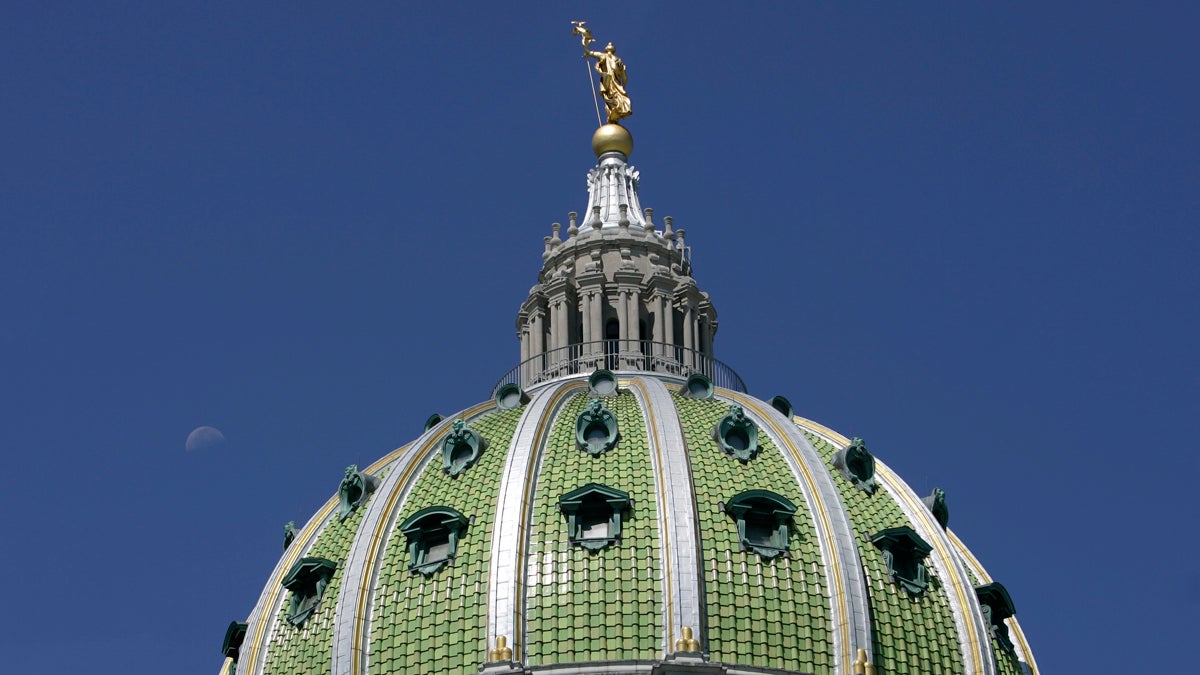Letter: With common sense, Pa. budget can save public education statewide

The dome of the Pennsylvania State Capitol Building is seen in Harrisburg , Pa. (AP Photo/Carolyn Kaster, file)
With the deadline to pass the 2013-2014 Pennsylvania budget closing in, it’s critically important to establish a plan that provides fair, adequate, equitable and sustainable funding for public education. We can serve our children well and help boost the Commonwealth’s economy by employing some common-sense approaches.
The following is a work of opinion submitted by the author.
With the deadline to pass the 2013-2014 Pennsylvania budget closing in, the Council for the Advancement of Public Schools believes it’s critically important to establish a plan and budget that provides fair, adequate, equitable and sustainable funding for public education now and in the future. Without a resolution to this funding crisis, a significant number of districts will be pushed to the breaking point in this upcoming fiscal year.
We can serve our children well and help boost the Commonwealth’s economy today and tomorrow by employing some common-sense approaches. The House is proposing $100 million more be allocated for education, but this still leaves public school districts with $800 million less than they had just two years ago. Restoring that funding would allow school districts and colleges to rehire 20,000 teachers, counselors and support professionals who lost their jobs as a result of funding cuts.
We should also place a hold on the $360 million reduction in the capital stock and franchise tax rate and the total planned elimination by January 2014. We need to close the “Delaware loophole” with new legislation that would require the 72 percent of profitable companies that now escape them to pay corporate taxes to Pennsylvania.
We also support eliminating the current tax credits that allow businesses to fund tuition vouchers, also known as Educational Opportunity Scholarships, for students to attend private or religious schools that are not accountable for results. We advocate for restoring the state subsidy for school district payments to charter schools that was eliminated two years ago, which forced school districts and local taxpayers to pay the entire bill when students attend a charter school.
We believe the sale of state liquor stores is short-sighted, since they bring in about $494 million in income each year. While the Commonwealth would receive $2 billion from their sale over a four-year period, that’s only slightly more than the amount they would currently generate over the same time period. And once the stores were gone, that annual income would be lost forever.
We should continue with the defined benefit pension plan for all public employees rather than shutting it down and introducing a second plan which would be more costly to operate and would also increase the unfunded liabilities of the original plan by as much as $21 billion. We must also honor the Pension Reform Law of 2010 which calls for paying the debt that the state and school districts accumulated over a decade when little or no payments were made.
We believe this public school funding crisis is one that has been manufactured and can be solved when reasonable approaches are used. We urge you to let your legislators know your point of view about the importance of public education — to our students, our state’s economy, and our future.
—
Linda J. Weaver is a leader of the Council for the Advancement of Public Schools.
WHYY is your source for fact-based, in-depth journalism and information. As a nonprofit organization, we rely on financial support from readers like you. Please give today.

